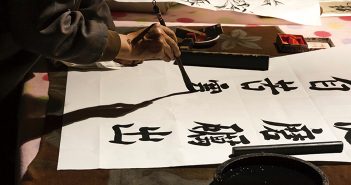
One Brushstroke at a Time: Feeling Free in the World of Chinese Painting
One student shares how Chinese caligraphy connects her with her roots.

One student shares how Chinese caligraphy connects her with her roots.

Listen to classical music performed by and for kids from the comfort of your homes!

Time is of the essence for parents, so how can you join National Novel Writing Month?

Not all gifts will be welcomed in China. Have you made one of these top five mistakes?

Pregnant? Get ready for more advice than you could possibly want…

We see mooncakes everywhere. Now find out why we eat them for Mid-Autumn festival.

One of the best things about living abroad is immersing oneself into the local culture.

No matter where you’re from, food is one thing that can always bring people together.

Learn the words you need to order a tasty juicy burger anywhere in China.

These aren’t your normal trivia answers. At least one of these facts is sure even the seasoned Beijinger!
